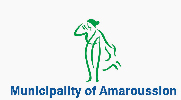
|
||
HIGHLIGHTS OF THE DAY 25 OCTOBER 2014 |
||
CONTENTS: |
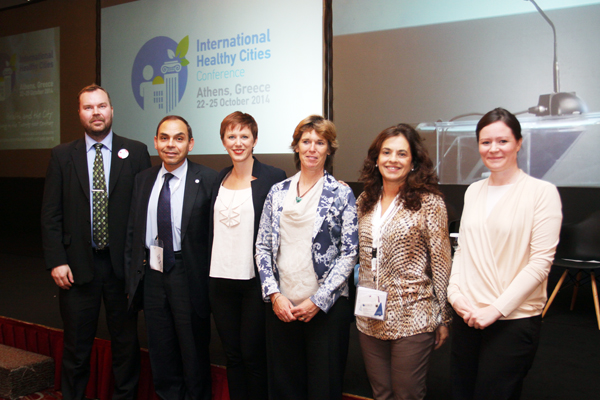
|
|
|
Arto Holopainen; Maged Kamel Boulos; Christine McLaren; Gayle Souter-Brown; Waleska Teixeira Caiaffa (chair), and Carrie Exton. |
||
SMART AND INNOVATIVE CITIES CREATING HAPPY AND RESILIENT CITIESPlenary 5: Social, innovative and smart = happy citiesCreating self-aware and smart healthy cities was the title of the keynote by Maged Kamel Boulos, Professor and Chair of Digital Health, Alexander Graham Bell Centre for Digital Health. According to Professor Boulos, Information Technology could improve the level of health in the city; however this might have an impact on the level of citizens’ privacy protection. He also stressed out the fact that smart cities stand a better chance of becoming healthy cities, but other factors are also very important. Christine McLaren, journalist, researcher and co-founder, Discourse Media, Vancouver, spoke on the happy city and transformation of our lives through urban design. Apart from the basic coverage of life needs, such as food, shelter or safety, happiness requires a sense of mastery over one’s life as well as interaction with co-citizens and neighbours. Happy cities are social cities, Mrs McLaren said. Presentations were also delivered by: Gayle Souter-Brown, Managing Director, Greenstone Design UK Ltd; Arto Holopainen, Development Director, Kuopio Innovation Ltd; and Carrie Exton, Policy Analyst, Organisation for Economic Co-operation and Development. |
||
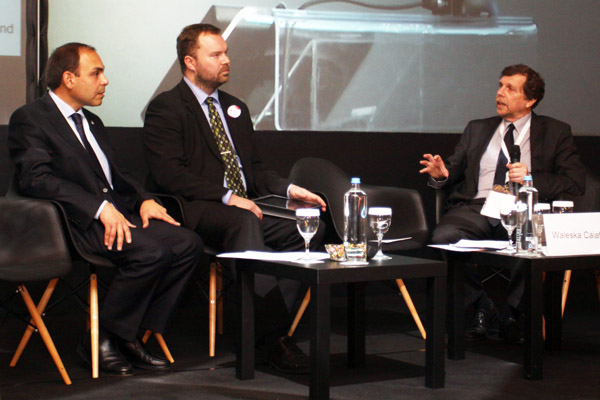
|
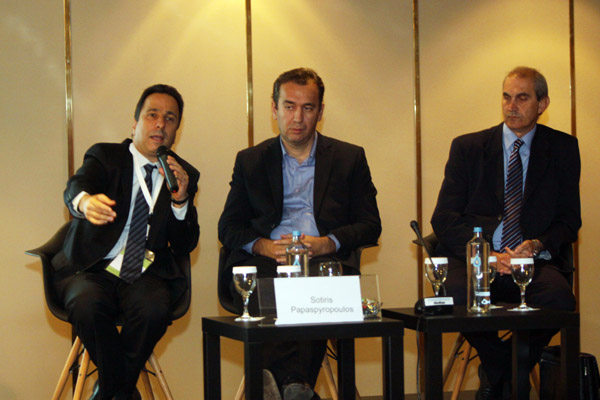
|
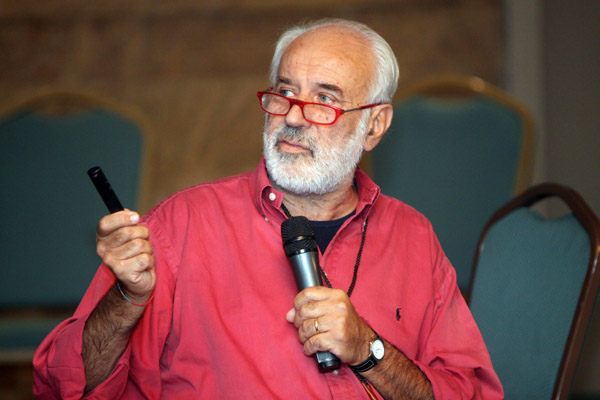
|
|
Maged Kamel Boulos; Arto Holopainen, and Agis D. Tsouros. |
Sotiris Papaspyropoulos (facilitator); Giorgos Kormas, Nikos Lykoudis. |
Nicolo Gianotti. |
ROUND TABLE 13 PROMOTING INNOVATION - CREATING SELF-AWARE, SMART, HEALTHY CITIESTo this round-table participated: Maged Kamel Boulos, Professor & Chair of Digital Health, Alexander Graham Bell Centre for Digital Health, University of the Highlands and Islands, Inverness, UK; and Arto Holopainen, Development Director Kuopio Innovation Ltd, Kuopio, Finland. The session was chaired by Agis D. Tsouros. Presentations were delivered by Yvonne Doyle, London Regional Director, Public Health England, and Rodd Bond, Programme Director, Netwell Centre, School of Health & Science, Dundalk Institute of Technology, Ireland. |
INNOVATIVE PROGRAMMES OF THE HELLENIC HEALTHY CITIES NETWORKTwo innovative programmes were presented at this session: City Centres for the Promotion of Health (KEP Hygeias), aiming at providing information on prevention and awareness to citizens, by Giorgos Kormas; and the Portal for my-Health, providing municipalities with an interactive platform for electronic health files and communication with citizens, by Nikos Lykoudis. |
CITY TOURISM & HEALTHThis master class, conducted by Agis D. Tsouros, WHO Regional Office for Europe, and Nicolo Gianotti Klaus sas, health consulting, Milan, focused on how to make a Healthy City more tourist-friendly and treated questions such as tourism for health and wellness, physical accessibility for people with disabilities/elder people, walkability and cyclability of a city, languages and food preferences support, etc. |
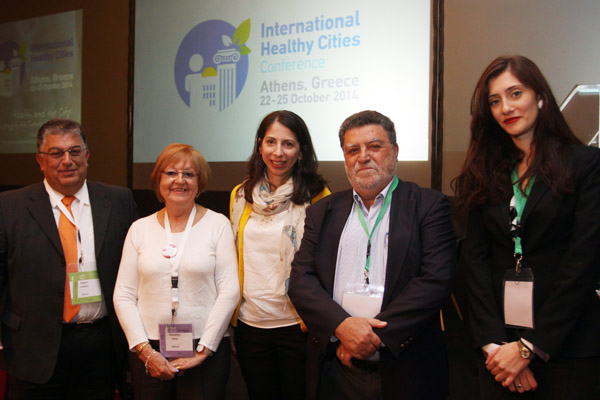
|
||
|
Professor Dimitris Zerginis; Anna Ritsatakis (chair); Anastasia Kentepozidou; Lykourgos Liaropoulos, and Aikaterini Pournaropoulou. |
||
ROUND TABLE 14 GREEK CITIES CONFRONT THE HEALTH CONSEQUENCES OF THE ECONOMIC CRISIS: EXAMPLES OF RESILIENCE AND INNOVATIVE SOLUTIONSThe economic crisis in Greece has created excessively high levels of unemployment & poverty with the result that many people have lost their access to health care; social exclusion and mental health problems are increasing. The session examined innovative ways in which cities tried to assess the needs for health & social care (City of Philothei-Psychiko); mobilized volunteers to fill the gaps, and created new partnerships to meet basic needs, create employment opportunities & access to social services (programme for voluntary services provided by health professionals in the City of Aghii Anargyri & “Health Allies” volunteer recruitment programme, an initiative of the University of Athens). Lykourgos Liaropoulos, Professor Emeritus, University of Athens, presented his innovative strategy for accessible healthcare services accessible to all within a sustainable Health System based on two principles: national health insurance and access to hospital care. Having acknowledged that the Greek health system is not viable, he proposes a strategy in order to secure sustainable financing through taxes, and to reform hospital care by establishing the obligatory referral by primary care physicians for the admission of patients to the hospital. |
||
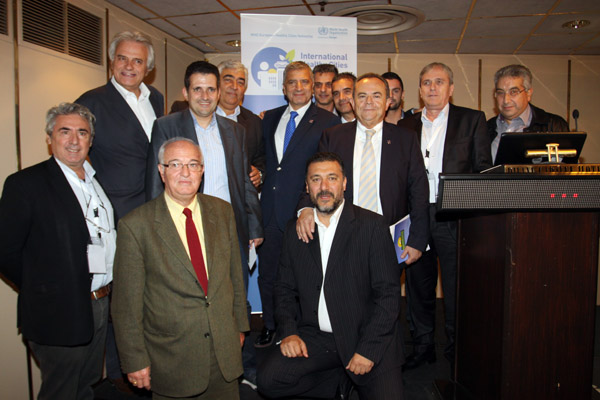
|
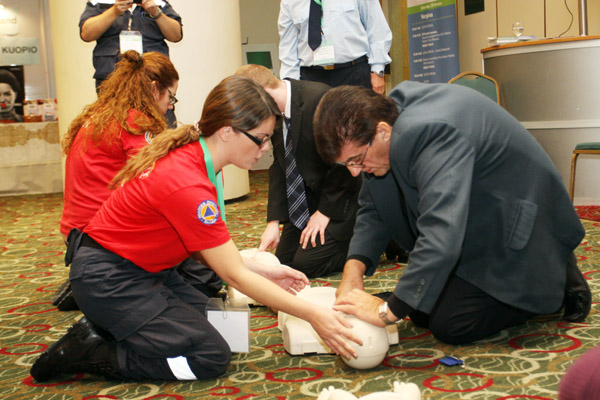
|
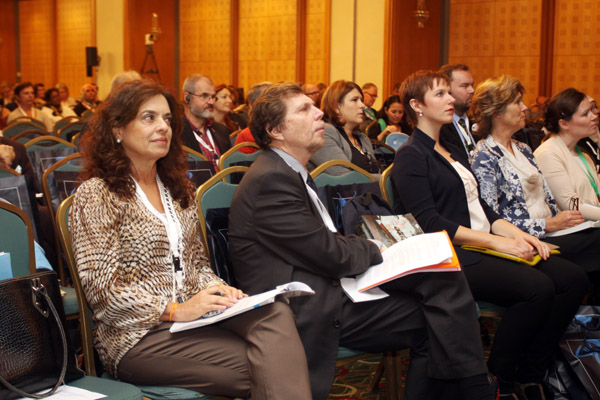
|
|
Mayors at the General Assembly of the Hellenic Healthy Cities Network. |
An exchange of life-saving knowledge between citizens: Rescue volunteers offer a hands-on CPR experience to delegates. |
Plenary: the audience. |
PLENARY SESSION 6The closing session of the conference that was chaired by Giorgos Patoulis and Agis D. Tsouros started with an intervention by Graham Alabaster, Senior Adviser, United Nations Human Settlements Programme (UN-Habitat). Franklin Apfel presented to delegates the final adopted Athens Declaration for Healthy Cities: the Political Statement and the Action Commitments for Phase VI. |
||
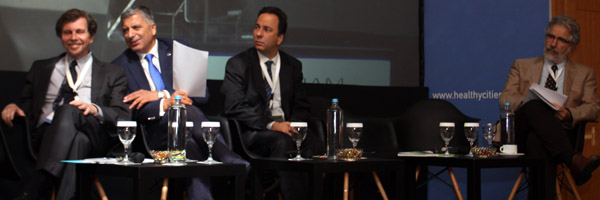
|
||
|
Signing of the declaration, first by Giorgos Patoulis, Mayor of the hosting City of Amaroussion, and then by all officials present. |
||
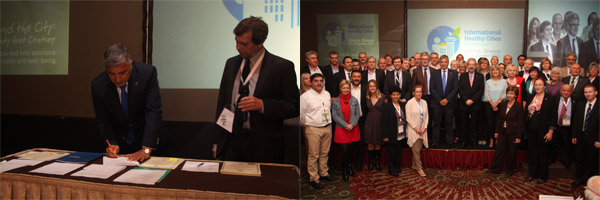
|
||
|
Connie Petersen and Agis D. Tsouros presented the Diplomas for Phase V for cities and national networks (in the photos: Diplomas awarded to the Mayors of Amaroussion, Greece; Belfast, N. Ireland; Horsens, Denmark.) |
||
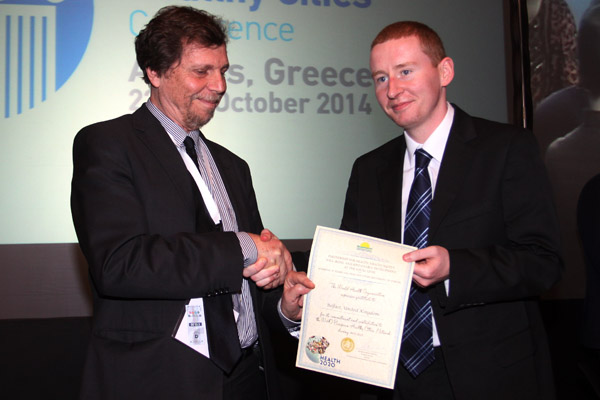
|
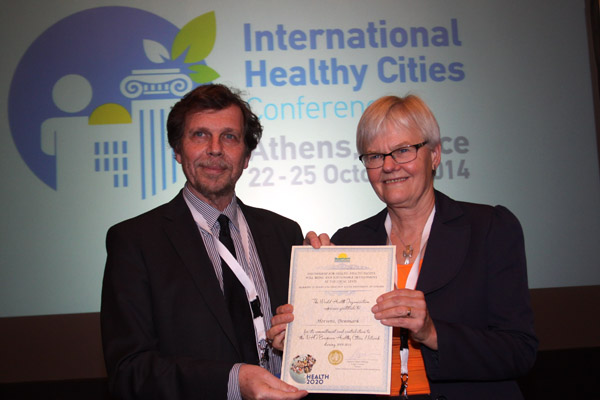
|
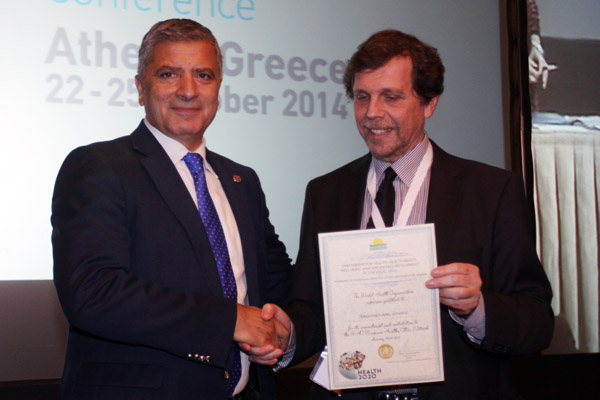
|
|
Finally, the City of Kuopio, Finland, host of the 2015 Healthy Cities Conference was presented; the ceremony closed with a greeting by the Mayor of Amaroussion, Giorgos Patoulis. |
||
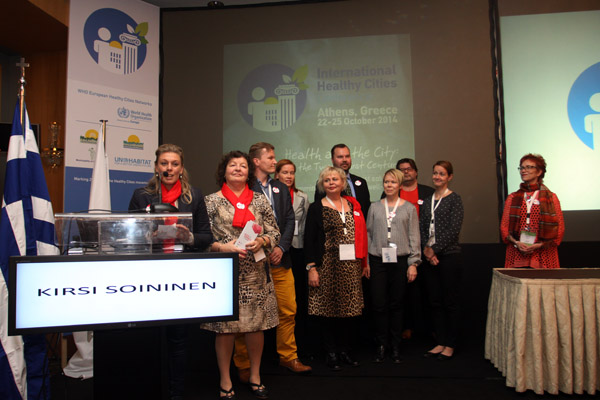
|
||
HIGHLIGHTS VIDEO |
||
|
Take a moment and watch the video with snapshots from the Healthy Cities Conference in Athens |
||
|
|
||



